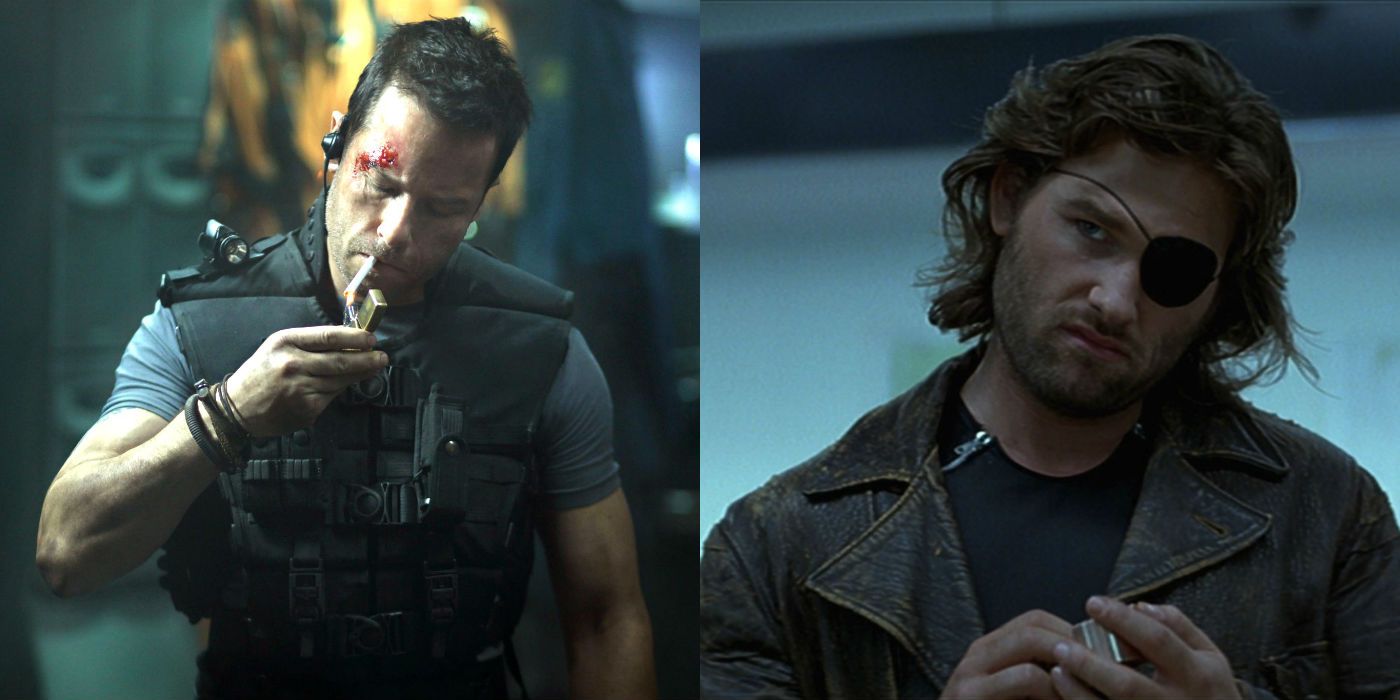Picture this scenario: a wrongfully convicted man in a dystopian future is offered his freedom by the government, provided he can rescue an important person from inside a floating prison that has been taken over by its violent inmates. Those now imagining the 1981 John Carpenter cult classic Escape from New York - or possibly its similarly plotted 1996 sequel Escape from L.A. - are not wrong to do so, but the above description equally applies to the 2012 Guy Pearce-fronted action flick Lockout.
A dud both financially - earning $32.2 million worldwide on a production budget of $20 million - and critically - holding a 38% rating on Rotten Tomatoes - Lockout is a film most have likely forgotten about, even just a few years after its release. Unfortunately for Lockout writer and executive producer Luc Besson (The Fifth Element), one person who didn't forget about it was Carpenter, who - along with co-writer Nick Castle and rights holder Studio Canal - sued the French filmmaker for plagiarism. Last fall, a court ruled in Carpenter's favor, ordering Besson to pay up to the tune of $95,000, admittedly only a fraction of the $2.5 million in damages Carpenter's side asked for.
Displeased by this ruling, Besson filed an appeal, which as it turns was a big mistake. Yahoo is reporting that not only did the court in question deny Besson's appeal of the judgment, it further ruled that he now has to pay Carpenter and company nearly $500,000.
These types of lawsuits are nothing new to the film industry - or the creative arts in general - as there are only so many types of stories available to tell, and only so many original ideas left. After all, motion pictures have been around for over 100 years, and the art of storytelling has been around as long as humanity has. This is especially true when it comes to films of the same genre, which tend to share elements by their very nature. That said, it's rare for a case like this to actually result in a judgment for the plaintiff, as plagiarism has been established as notoriously hard to prove in court.
One aspect that probably helped Carpenter succeed in this particular case was Lockout's status as a wide-release Hollywood project starring recognizable actors like Pearce and Maggie Grace (Lost). Low-budget production houses like The Asylum are well-known for creating what they call "mockbusters" of big releases, which usually carry extremely similar plots and titles to the original work. Yet, these movies rarely result in lawsuits - and the ones that do get filed rarely win - likely because they are such small scale, direct to video productions that most studios don't see the point of wasting their time punching downward.
Are Lockout and Escape from New York very similar films? Yes, clearly they are. Does that mean Besson plagiarized Carpenter? The judge in this case sure thinks so. One wonders if this ruling will lead to more lawsuits of this kind being filed in the same court.
Source: Yahoo


